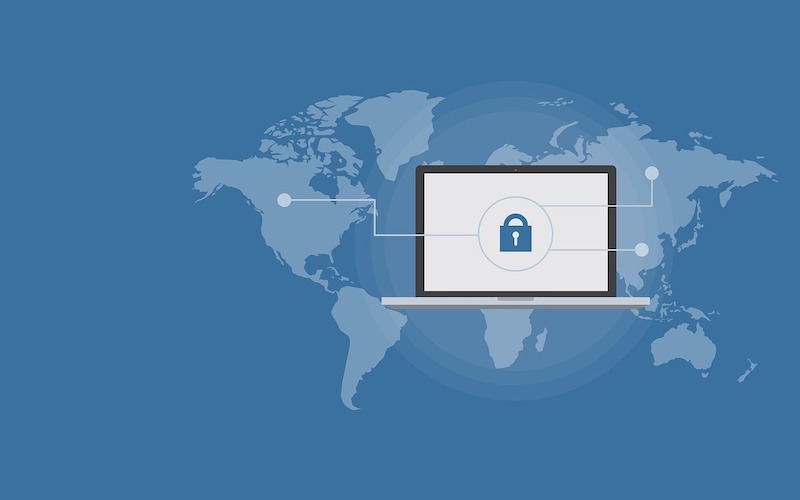According to Cybersecurity Ventures, organizations are losing egregious amounts of money as a result of cyberattacks. It’s estimated that businesses will lose up to $6 trillion by 2021. These statistics show the glaring risks that organizations are exposed to as technological innovation rises.
The cybersecurity risks are continually rising, owing to the dynamism of technology. Organizations that deal directly with personally identifiable information are at a higher risk of the cyberattacks. As such, you shouldn’t discard cybersecurity measures in your firm. Instead, it’s time that you institute more stringent measures to protect your organization from such attacks.
Why Cyberattacks Have Become So Common/The Evolution Of The Cyberattacks
If you compare the current cybersecurity environment with that of several years back, you’ll realize that cyberattacks have become more rampant. What’s worse is the fact that these attacks have more devastating effects and may lead to the closure of your business. But why has the cybersecurity situation worsened?
Well, there are myriad factors that have contributed to the rise of cyberattacks. However, a few of these factors are outstanding. First, the increased uptake of technology over the last decade has facilitated the activities of cybercriminals. Broadband internet speeds have significantly increased, which has made it possible for businesses to transit most of their activities into more economical, fast, and conducive technology platforms. While this has contributed to the increase in customer satisfaction and employees’ productivity, it leaves the organization’s information at a higher risk of unauthorized access by individuals outside that institution. If you fail to institute enough security measures, criminals can access your data for malice and financial gains.
Secondly, hackers are taking advantage of poorly informed masses to exploit their sensitive information, which is later utilized in theft and other fraudulent activities. For example, according to Business Insider, approximately 28 percent of people in the US use the same password for all their online accounts. While this makes it easy for you to remember, it makes it a breeze for cybercriminals to access your accounts. As such, you should always ensure that you use a different and highly complicated password for each of your online accounts. Also, 50 percent of people globally are likely to click on a link sent from unknown sources. Hackers are taking advantage of this ignorance to phish information from unsuspecting internet users.
Finally, the rise of cyberattacks has increased due to the adoption of the Internet of Things. The idea where several devices are interconnected to simplify things for you could be dangerous if you fail to exercise caution when using them. While your organization has the right to reap the benefits of technology, you should never discard cybersecurity. You should only apply IoT technology if you’re certain that the existing security measures can protect your organization entirely.
Why is Cybersecurity Important Today?
Cybersecurity has become an elephant in the corporate world. While companies are investing millions of dollars in preventing cyberattacks, criminals are ever-evolving. In the recent past, companies including Facebook, Equifax, Yahoo, First American Corporation, and many others have suffered attacks which cost them millions of dollars. When such organizations face threats, they suffer huge financial and business losses, which may lead to their collapse. As such, it’s necessary to institute measures to avert such a situation.
When to Safeguard Your Organization Against Cybersecurity Threats
If you’re using the Internet of Things in your daily operations, you should never ignore instituting the necessary cybersecurity measures. It’s paramount to realize that cybercriminals are never selective when designing their attacks. As such, you should always have cybersecurity strategies regardless of your industry or the size of the company. Approximately 58 percent of all the malware attacks that occur globally primarily affect small businesses.
Related: Has Cybersecurity Evolved Beyond Passwords?
How to Safeguard Your Business Against Cyberattacks
Cybercriminals will always change tactics to beat the existing security measures. As such, you should keep your protection measures updated all the time. Some of the most effective techniques include:
- Integration of Artificial Intelligence. This technology is used for real-time detection of threats. While it’s expensive to apply the technique, it offers one of the safest operational environments for any organization. It applies Machine Learning technology, which equips all your operational tools to detect, block, and report security threats. The technology requires a team of IT professionals to code and update the systems regularly. If well applied, this technique will block numerous threats that would have potentially cost the organization millions of dollars annually.
- Regular Employee Training. Always ensure that your employees are updated on the various security measures that you have instituted in your organization. All the stakeholders should possess exceptional ability to effectively run the company’s operations without exposing its data to risks. You should formulate data sharing policies and ensure that employees abide by it entirely. Sharing of data across different departments should be highly regulated and monitored to ensure that no employee share sensitive details unprotected. If any employee leaves the company, you should facilitate the change of system to prevent them from accessing the data henceforth.
- Use a Strong Password and Firewalls. To ensure that hackers do not access your data, you are obliged to use strong passwords and firewalls. Passwords should be a combination of upper case letters, lower case letters, characters, and numbers. Make it as difficult as possible for anybody to guess.
- Comply with All Standards and Regulations. Various regulations have been instituted to ensure that your operations are safe. Such regulations include the Health Insurance Portability and Accountability Act (HIPAA), the Payment Card Industry Data Security Standard (PCI DSS), the NIST, CCPA, AND GDPR. Complying with these standards is key in ensuring cybersecurity in your organization.
- Risk Management and Assessment. You should regularly review the risks that your organization faces and institute measures to avert them. Ensures that you regularly review the protection measures for continued efficiency.
Related: Brick by Brick: Building Israel’s Cybersecurity Powerhouse










